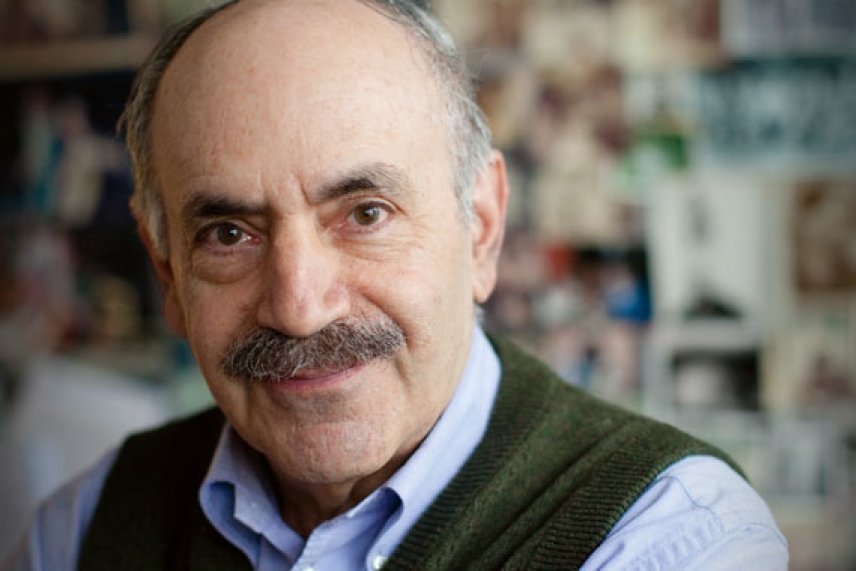
Whitehead Institute Founding Member Robert Weinberg
Kathleen Dooher/Whitehead Institute
Robert Weinberg awarded Landon-AACR Prize for Cancer Research
CAMBRIDGE, Mass. - Whitehead Founding Member Robert Weinberg has been named one of two recipients of the 2006 Landon-AACR Prize for Cancer Research.
The prize, offered by the Kirk A. and Dorothy P. Landon Foundation and the American Association for Cancer Research, is the largest awarded to cancer researchers by a professional society of their peers. Angela M. Hartley Brodie, professor of pharmacology and experimental therapeutics at the University of Maryland School of Medicine in Baltimore, is the second recipient of the Landon Prize.
Each winner will receive an unrestricted cash award of $200,000. The two will present successive scientific lectures at the AACR Annual Meeting, in Washington, D.C., on April 3, 2006.
“Cancer research has been a consuming passion of my life for three decades, and so it comes as an extraordinary honor that I am recognized in this way by my peers who include, by all measures, the world leaders in this dynamic and ever-fascinating field of science,” says Weinberg. “I am extremely flattered. Never in my wildest dreams could I have imagined that my work begun three decades ago would lead to recognition of this sort.”
Weinberg’s first major contributions to cancer research were the discoveries of human oncogenes (genes that cause cancer when mutated) and tumor suppressor genes (genes that when mutated fail to suppress unchecked cell growth).
His laboratory later built upon the previous discovery of telomeres, specialized structures that define the ends of chromosomes. Every time a cell divides, the DNA at each telomere gets shorter. The enzyme responsible for maintaining telomere length, called telomerase, occurs at low levels in normal human tissues. In tumor cells, telomerase is more prevalent and more active, giving cells a longer than normal life span.
The genes coding for telomerase proved to be essential ingredients in the molecular cocktail which must be altered within a cell before it is transformed from the normal state to cancer. Once the Weinberg team learned the identities of the genes critical to tumor formation, they were able to effect the transformation in vitro. The process took 15 years.
The Weinberg lab continues to study the molecular mechanisms that control cell proliferation and the formation of tumors. Additional work has shown that when the cells in the thin layer of tissue which covers the mammary glands (epithelial cells) are transformed into tumor cells, they must recruit stromal cells (which occur in nearby connective tissue) into their midst before they can form carcinomas. Weinberg is investigating how stromal cells are recruited. His lab has developed an experimental system that models all the steps by which breast cancer forms.
He is also studying the genetics of tumor metastasis, and has recently begun to investigate how cancer stem cells affect tumor development.
Topics
Contact
Communications and Public Affairs
Phone: 617-452-4630
Email: newsroom@wi.mit.edu